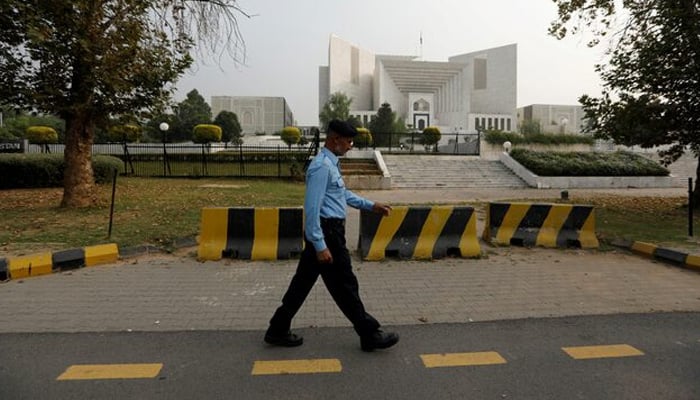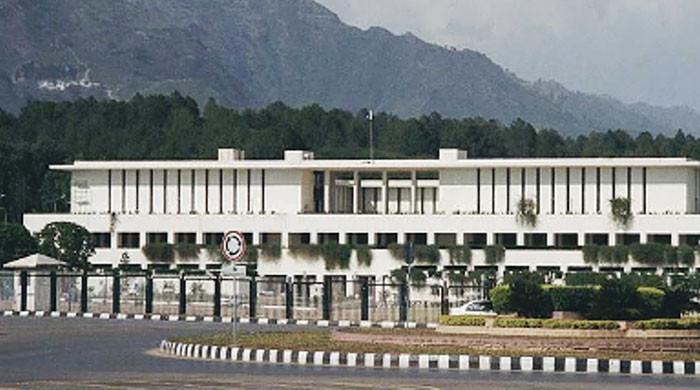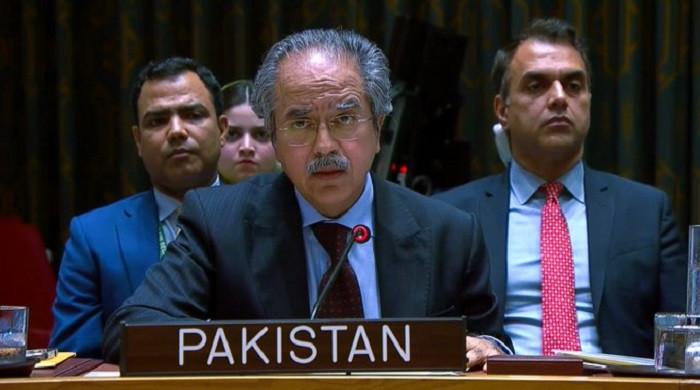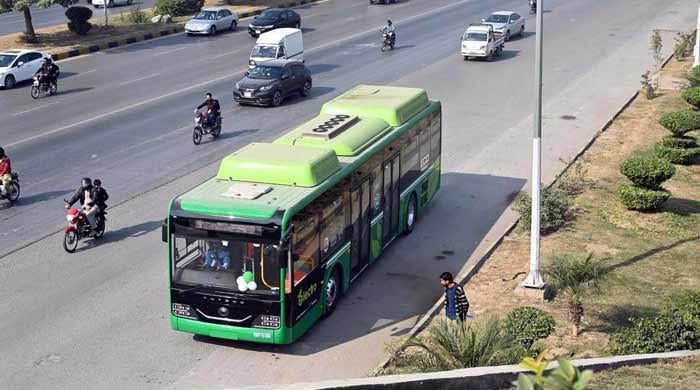SCP issues new Supreme Court Rules 2025
Decision reflects SC's commitment to modernisation, digitalisation, and bringing justice system procedural clarity
August 14, 2025

The Supreme Court of Pakistan (SCP) has formally published the Supreme Court Rules, 2025, replacing the Supreme Court Rules, 1980.
This major reform reflects the top court's commitment to modernisation, digitalisation, and bringing justice system procedural clarity, in line with global governance of law.
Framed under Article 191 of the Constitution, the new rules replace outdated provisions and bring court procedures in line with contemporary legal, constitutional, and technological developments. They have come into immediate effect.
To carry out this revision, the chief justice of Pakistan constituted a committee comprising Justice Shahid Waheed, Justice Irfan Saadat Khan, Justice Naeem Akhter Afghan, and Justice Aqeel Ahmed Abbasi.
The Committee engaged with Judges, the Pakistan Bar Council, the Supreme Court Bar Association, and other Bar Associations. The final draft was placed before the Full Court and approved after detailed deliberation.
The Supreme Court Rules, 2025 consist of seven parts, thirty-eight orders, and six schedules, with approximately 280 provisions amended (including 160 from the Schedules), 60 new provisions added, and 5 outdated provisions deleted.
Key Highlights of the Supreme Court Rules, 2025
- Digital transition & technological enablement
- All petitions and paper books must now be filed electronically; scanned copies are mandatory.
- Notices, orders, certified copies, and pleadings will be issued digitally.
- Hearings through video-link are permitted.
- Affidavits may be authenticated by an Apostille.
- Parties and Advocates must provide updated phone numbers, email addresses, and digital app details.
- Judicial documents sent via post will not be entertained.
Access to records & efficiency
- Parties may inspect records or obtain copies online or in person.
- Applications marked urgent or requesting interim relief must be listed within 14 days or at the earliest practicable date.
- The Registrar is authorised to ensure compliance with formats prescribed in the Sixth Schedule.
Court fee & legal aid
- Court fees revised after decades; Advocate and official expenses updated.
- Criminal petitions are fee-exempt (except for certified copies); copies are free for petitions submitted from jail.
- Habeas corpus and Article 184(3) petitions related to criminal matters remain exempt from fees.
- The Registrar may appoint Advocates at State expense in death sentence cases; counsel fees have been enhanced.
Appeals, reviews & constitutional matters
- Intra-Court Appeals introduced for orders under Article 184(3) and contempt proceedings.
- One review petition permitted per judgment; it may be filed in person or through alternate counsel. Frivolous reviews may attract penalties; the security deposit has been increased.
- A party may revoke a Power of Attorney and appoint a new Advocate-on-Record.
- Transfer applications under Article 186A and Section 25A of the Family Courts Act, 1964, are now recognised.
- Constitutional Benches are formalised through a newly added chapter.
Adjudication & procedural safeguards
- Appeals from interlocutory orders to be heard by a bench of at least two Judges; all other appeals, including those against acquittal, by not less than three Judges.
- Paper books must be delivered in advance to the Attorney-General, Advocate-General, Prosecutor-General, and respondents, with certification of service.
- The registrar may recall ex parte orders upon sufficient cause.
- Compromise in compoundable offences is now formally accommodated.
- In acquittal appeals, the Court may require surety or take coercive action if a respondent avoids appearance.
- Procedures for summoning records from lower courts have been streamlined.
Administrative & structural reforms
- The Registrar is empowered to supervise staff and exercise procedural powers as assigned under the Rules.
- Branch Registries are retained at all provincial capitals; filings are allowed at either Islamabad or the relevant Registry.
- All fees, costs, security deposits, and allowances will be reviewed and revised every three years.
- Written tests for registration as Advocate-on-Record have been abolished; Advocates with five years’ standing may apply directly.
Courtroom conduct & simplified filing
- Advocates may wear either a sherwani or a short black coat; wearing gowns is now optional.
- No concise statement is required in criminal appeals. In civil matters, if security for costs is not deposited within 30 days, leave to appeal stands rescinded unless otherwise ordered.
- Respondents may seek summary dismissal of frivolous or delay-motivated appeals.
- Procedural failures shall be treated as irregularities and will not nullify proceedings; the Court’s inherent powers to ensure justice remain unaffected.
The Supreme Court Rules, 2025, reflect a transformative vision—integrating digital tools, promoting timely justice, and eliminating procedural rigidity, the top court said in a statement.
With inclusive provisions and simplified processes, the Rules usher in a new era of judicial efficiency and responsiveness in Pakistan, it added.











